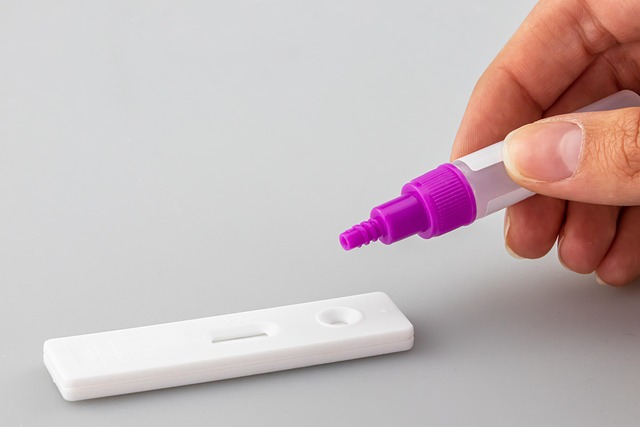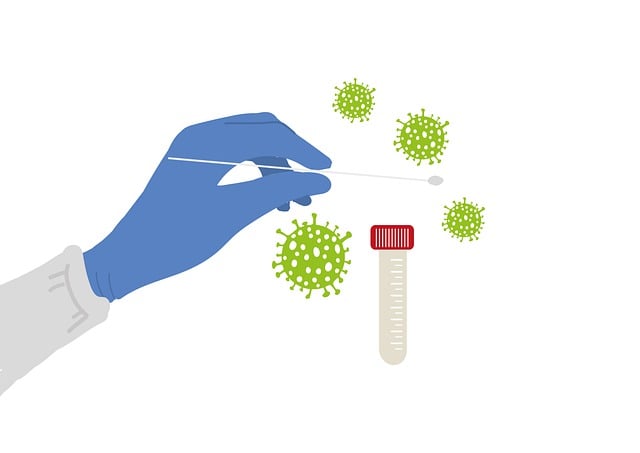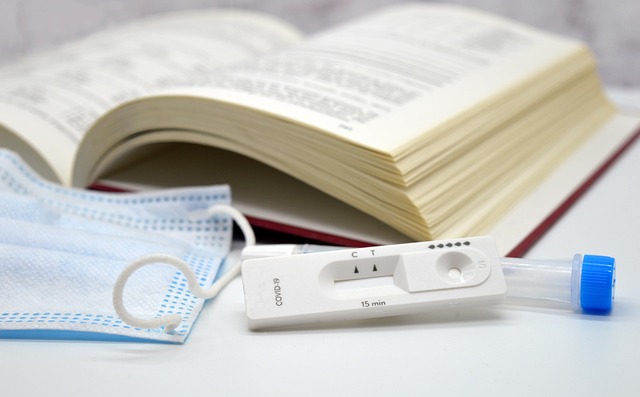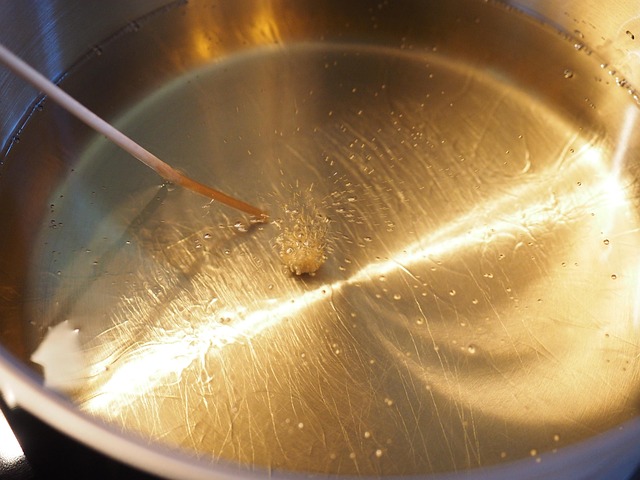Comprehensive thyroid testing is a vital diagnostic tool for autoimmunity, particularly Hashimoto's thyroiditis, measuring anti-TPO and anti-Tg antibodies. Unusual scan results and symptoms like fatigue, weight gain, and cold intolerance trigger this testing, uncovering potential autoimmune disorders impacting athletes or those seeking natural thyroid function enhancement. This process goes beyond basic antibody tests, delving into multiple hormones and markers to understand intricate thyroid function dynamics, crucial as the thyroid regulates metabolism affecting every cell in the body. Accurate comprehensive thyroid testing enables effective treatment and management, with thorough interpretation by a healthcare professional essential for identifying autoimmune disorders or other conditions.
“Uncover the mysteries of autoimmunity with our guide to thyroid antibody tests. Understanding thyroid antibodies is key to navigating potential autoimmune disorders affecting the thyroid gland. This article delves into the importance of comprehensive thyroid testing, exploring why it’s essential for an accurate diagnosis. We’ll interpret test results, guide you through next steps after a positive test, and highlight common findings, empowering you with knowledge about this often-overlooked health aspect.”
- Understanding Thyroid Antibodies and Autoimmunity
- Why Comprehensive Thyroid Testing is Crucial
- Interpreting Results: Common Findings and Their Meanings
- Next Steps After a Positive Thyroid Antibody Test
Understanding Thyroid Antibodies and Autoimmunity

Thyroid antibodies play a crucial role in diagnosing autoimmunity, especially when it comes to conditions like Hashimoto’s thyroiditis. These antibodies are proteins created by your immune system that attack the thyroid gland, leading to its inflammation and dysfunction. Comprehensive thyroid testing involves assessing these antibodies, such as anti-thyroid peroxidase (TPO) and anti-thyroglobulin (Tg), which can provide valuable insights into potential autoimmune disorders.
Understanding thyroid antibody levels is essential, especially for athletes or individuals seeking natural ways to boost thyroid function. Thyroid scans types and preparation, while not directly related to antibodies, are part of a broader diagnostic process. Unusual results from these tests, along with symptoms like fatigue, weight gain, and cold intolerance, may prompt further investigation through comprehensive thyroid testing to uncover underlying autoimmune conditions.
Why Comprehensive Thyroid Testing is Crucial

Comprehensive thyroid testing goes beyond a simple thyroid antibody test. It involves analyzing various hormones and markers to gain a deeper understanding of thyroid function. This is crucial because the thyroid plays a pivotal role in regulating metabolism, influencing nearly every cell in your body. Imbalances can manifest as a wide range of symptoms, often mimicking other conditions, making accurate diagnosis essential.
While a thyroid test at home can be convenient, comprehensive testing requires expert interpretation. Hormone levels, including testosterone, need to be assessed in context rather than in isolation. This involves considering factors like age, gender, and overall health. Accurate thyroid levels interpretation by a healthcare professional is key to identifying autoimmune disorders or other thyroid-related conditions, ensuring proper treatment and management.
Interpreting Results: Common Findings and Their Meanings

Interpreting your thyroid antibody test results is a crucial step in understanding your overall health and autoimmunity status. Common findings include Thyroid Peroxidase (TPO) and Thyroglobulin (TG) antibodies, both of which are indicators of autoimmune thyroiditis. Elevated levels suggest your immune system is attacking the thyroid gland. TPO antibodies, in particular, are highly specific for Hashimoto’s thyroiditis, an autoimmune disease that causes hypothyroidism.
A comprehensive thyroid testing approach often involves additional measures like checking thyroxine (T4) and triiodothyronine (T3) levels to assess thyroid hormone production. Comparing these results with your antibody profile helps doctors differentiate between subclinical hypothyroidism, overt hypothyroidism, or other thyroid-related conditions. Ultrasound vs. biopsy for thyroid evaluation is also a consideration; an ultrasound can provide images of the gland, while a biopsy may be recommended for further analysis in certain cases, especially when there are suspicious nodules or abnormalities detected during imaging.
Next Steps After a Positive Thyroid Antibody Test

After receiving a positive result for thyroid antibodies, the next step is to initiate comprehensive thyroid testing. This process involves further investigations to confirm autoimmunity and assess the severity of the condition. Your healthcare provider may recommend additional blood tests, such as TSH (Thyroid Stimulating Hormone) levels, T3, T4, and other thyroid antibodies like TPO and TG. These tests will provide a clearer picture of your thyroid function and help determine the best course of action.
Comprehensive thyroid testing is crucial for managing autoimmunity effectively. Based on the results, treatment options can be tailored to support optimal hormone levels for women (and men, as autoimmunity affects the thyroid in both genders). This may include lifestyle modifications, such as diet and exercise changes, along with medication or hormonal therapy to regulate thyroid function. For parents concerned about their baby’s thyroid development, early detection through comprehensive testing is key to ensuring timely interventions and promoting healthy growth.
Thyroid antibody tests are essential tools in diagnosing autoimmune disorders affecting the thyroid gland. By understanding the role of these antibodies and interpreting test results accurately, healthcare professionals can initiate appropriate treatment plans. Comprehensive thyroid testing goes beyond a single marker, providing a holistic view of thyroid health. If your test reveals positive antibodies, consult your doctor to discuss next steps, which may include further specialized tests and tailored management strategies to address potential autoimmune conditions.
